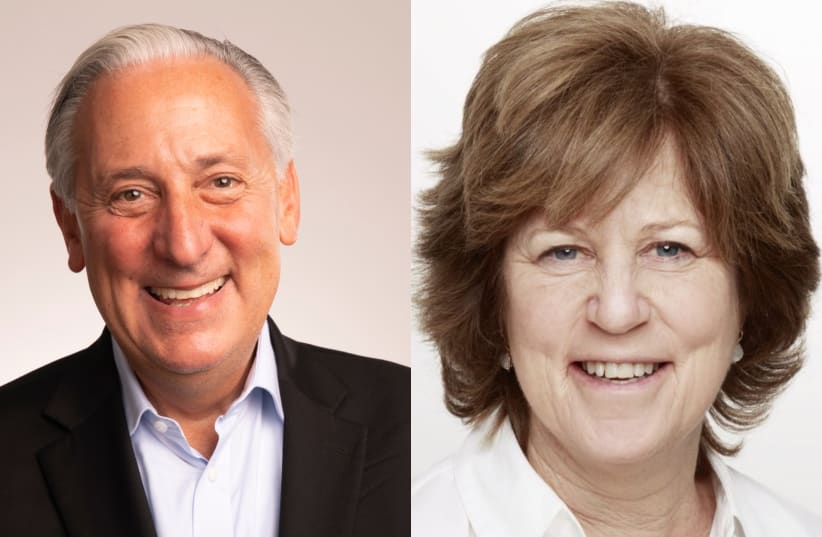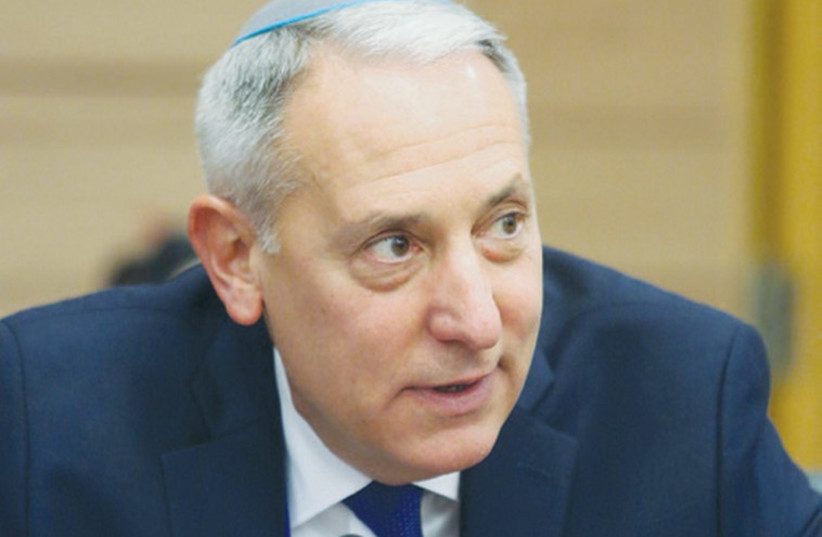In February, when Russia invaded Ukraine, the Jewish Federations of North America (JFNA) launched an emergency fundraising campaign across its 146-member federations the following day.
Its goal was $20 million but within two weeks the federations reached it, and two weeks later surpassed $40m. Half a year into the war, they’ve raised close to $75m. for the relief of Ukrainian Jews.
To people who are familiar with JFNA, this is not surprising. The 90-year-old organization has vast experience in emergency campaigns. During the Second Lebanon War, in 2006, for example, American federations raised over $300m. to help rebuild northern Israel.
At the helm of these efforts are two people: Eric Fingerhut, the president and CEO of JFNA, and Julie Platt, the new chairwoman of the group’s board of trustees.
Who is Eric Fingerhut?
A former congressman, state senator, CEO of Hillel International, and head of Ohio’s system of public universities and colleges, Fingerhut is a strong believer in the power of institutions and the change they can effect.
“Because of the support we provide every year, this strong infrastructure is capable of responding to a major crisis like what is happening in Ukraine,” he said. “When the fighting broke out, those organizations were already on the ground with professional staff and had the resources and strong local relationships. They have contacts, they know what the leaders in the Jewish communities need, and of course, in the case of the Jewish Agency, they can bring them to Israel and, in any case, help and support refugees in the border countries to which they have fled.”
Who is Julie Platt?
Platt, from Los Angeles, came to her new role after years of experience in the Jewish nonprofit sphere, including as chairwoman of the Jewish Federation of Greater Los Angeles and of the Foundation for Jewish Camp.
She told The Jerusalem Post that one of her main goals as JFNA chair is to “work hard to grow the relationship between the Diaspora and Israel.”
“Sadly, out of the crisis, we’ve seen how we’re all working together in the same direction to solve so many things that affect the broader Jewish community, from the crisis in Ukraine to the fight against antisemitism. All of us are trying to work together toward the security issues that we face in North America right now that have been very much supported and addressed [by] our friends and partners in the Jewish Agency,” she said.
Dealing with threats to North American Jewish communities
And the threat to the physical safety of North America’s Jewish communities is without a doubt at the top of JFNA’s mission statement. During the past three years, the organization has operated the LiveSecure campaign, in which tens of millions of dollars have been raised to cover the security of Jewish facilities across North America.
“We want to build a security umbrella that will cover every community in North America – and that’s an urgent need for us because violence can break out anywhere,” Fingerhut explained. “There has been an increase in antisemitic statements and hatred of Jews spread on social media in recent years. This reinforces the threat to us, and all Jewish federations must work collaboratively because we will not be able to meet this challenge alone.”
The challenges are not going away. Antisemitism is continuing. Just last month, the NYPD said it was increasing police patrols in some parts of New York, due to a rise in attacks, and the Ukraine war has been ongoing for more than six months since the Russian invasion began.
Fingerhut’s and Platt’s leadership will continue to be tested in the coming year. Their ability to garner widespread support among diverse and politically divided Jewish communities will not be simple. So far, though, they have proven their worth.

